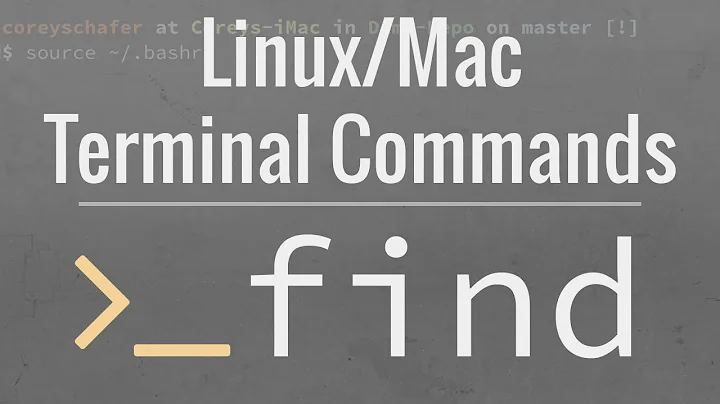How to use find command to delete files matching a pattern?
Solution 1
I generally find that using the -exec option for find to be easier and less confusing. Try this:
find . -name vmware-*.log -exec rm -i {} \;
Everything after -exec is taken to be a command to run for each result, up to the ;, which is escaped here so that it will be passed to find. The {} is replaced with the filename that find would normally print.
Once you've verified it does what you want, you can remove the -i.
Solution 2
If you have GNU find you can use the -delete option:
find . -name "vmware-*.log" -delete
To use xargs and avoid the problem with spaces in filenames:
find . -name vmware-*.log -print0 | xargs -0 rm
However, your log files shouldn't have spaces in their names. Word processing documents and MP3 files are likely to have them, but you should be able to control the names of your log files.
Solution 3
You can tell find to delimit the output list with NULLs, and xargs to receive its input list the same:
$ ls -l "file 1" "file 2"
-rw-r--r-- 1 james james 0 Oct 19 13:28 file 1
-rw-r--r-- 1 james james 0 Oct 19 13:28 file 2
$ find . -name 'file *' -print0 | xargs -0 ls -l
-rw-r--r-- 1 james james 0 Oct 19 13:28 ./file 1
-rw-r--r-- 1 james james 0 Oct 19 13:28 ./file 2
$ find . -name 'file *' -print0 | xargs -0 rm -v
removed `./file 2'
removed `./file 1'
Also, make sure you escape the *, either with a backslash, or by containing the vmware-*.log in single quotes, otherwise your shell may try to expand it before passing it off to find.
Solution 4
Dont't forget the find's -delete option. It remove the file without error with special characters...
Related videos on Youtube
Nocare
Updated on September 17, 2022Comments
-
Nocare over 1 year
I'm trying to write a bash command that will delete all files matching a specific pattern - in this case, it's all of the old vmware log files that have built up.
I've tried this command:
find . -name vmware-*.log | xargs rmHowever, when I run the command, it chokes up on all of the folders that have spaces in their names. Is there a way to format the file path so that xargs passes it to rm quoted or properly escaped?
-
 Dennis Williamson over 14 yearsCross-posted: stackoverflow.com/questions/1590297/…
Dennis Williamson over 14 yearsCross-posted: stackoverflow.com/questions/1590297/…
-
-
Jeff Snider over 14 yearsThat's neat. I didn't know about that.
-
icecbr over 14 yearsAlso, if it's just files you want to delete and not directories, you can add ''-type f'' to the find command.




